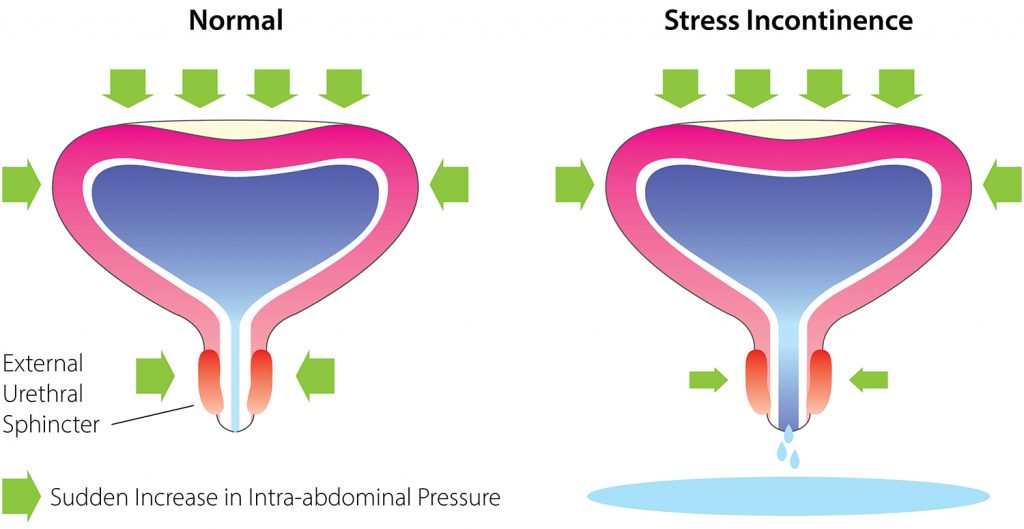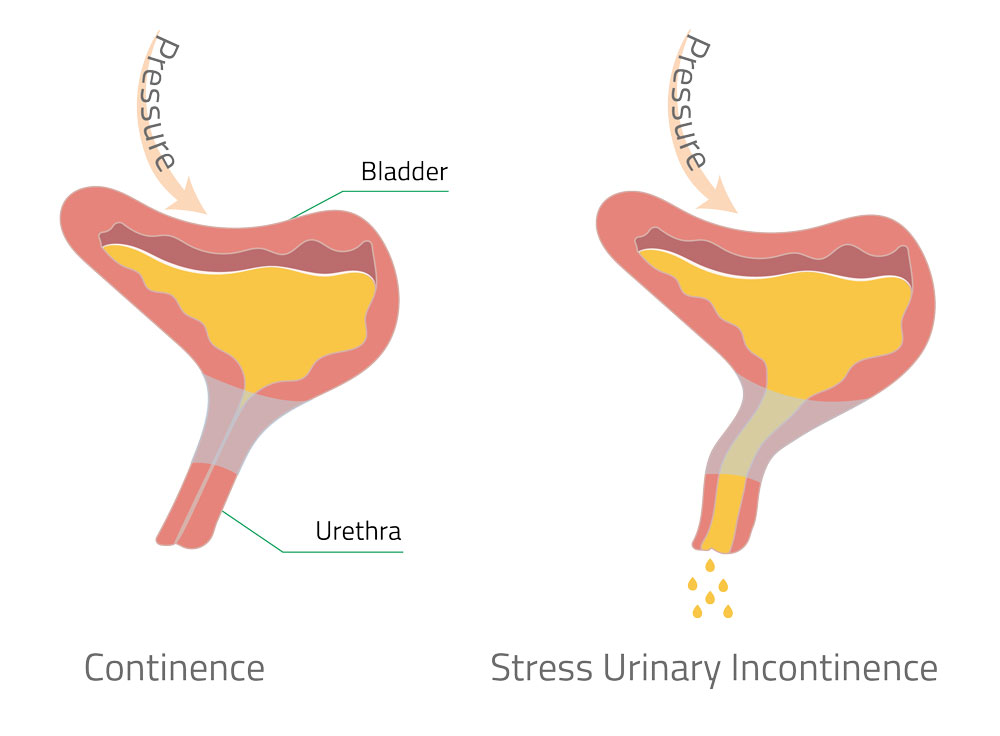Stress Urinary Incontinence (SUI) is when urine leaks out with sudden pressure on the bladder and urethra, causing the sphincter muscles to open briefly. With mild SUI, pressure may be from sudden forceful activities, like exercise, sneezing, laughing or coughing.
If your SUI is more severe, you may also leak with less forceful activities like standing up, walking or bending over. Urinary “accidents” like this can range from a few drops of urine to enough to soak through your clothes.
SUI is a very common bladder problem for women. It happens less often in men.
Another common bladder problem is called Overactive Bladder (OAB), or Urgency Urinary Incontinence (UUI). People with OAB have an urgent, “gotta go” feeling that they can’t control. Some people with OAB leak urine when they feel that urge.
The difference between SUI and OAB is anatomical. SUI is a urethral problem while OAB is a bladder problem. With SUI, the urethra cannot stop the sudden increase in pressure. With OAB, the bladder spasms and squeezes uncontrollably



